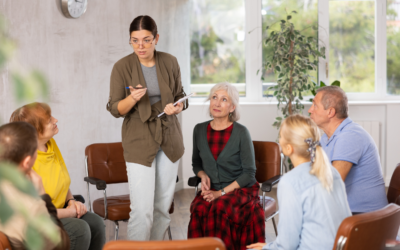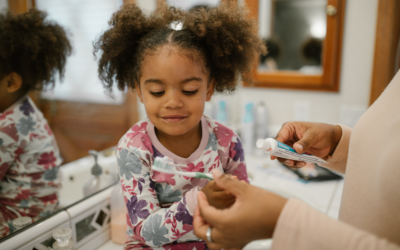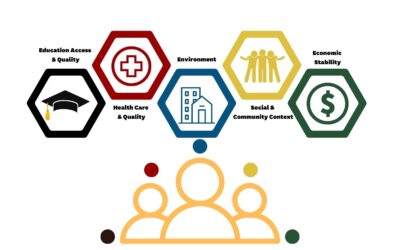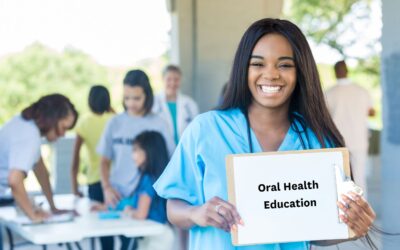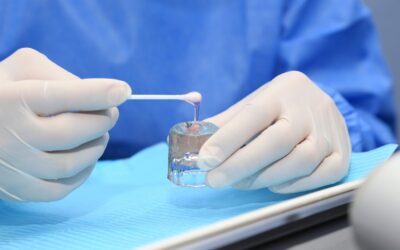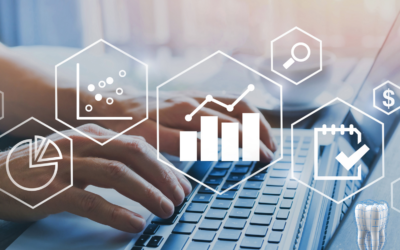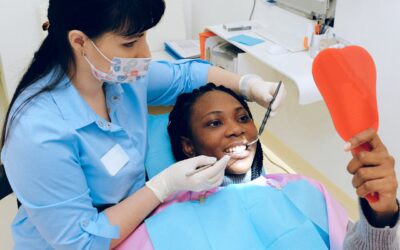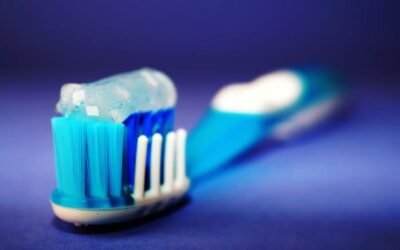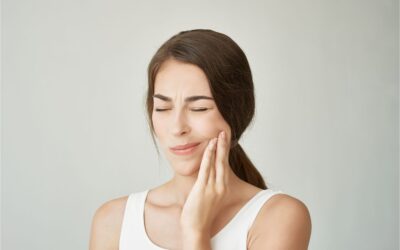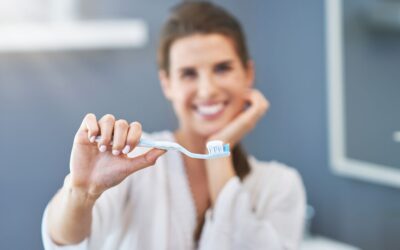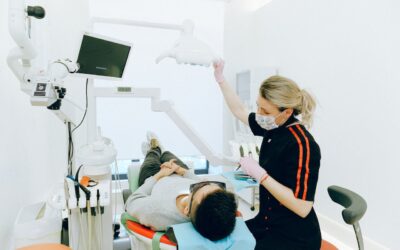https://open.spotify.com/episode/0hzOtByKqvuZ53eGVAJv5z?si=TVzhiKvxT4-yBu7IYB_kLA October marks National Gum Care Month, an opportunity to raise awareness about gum health and its broader implications for overall well-being. While medications are essential for...
Vaccination, Oral Health Education, and Their Impact on Oral Health and Health Program Development
https://open.spotify.com/episode/6wvY6TWeAt2qbTaRMzW9Xt?si=opB4kxWQQYatA069B0WMOg Introduction We have all heard that oral health is connected to overall health and well-being, but it is often neglected in public health initiatives, especially in developing nations. A...
Case Studies and Research from Ostrow’s Online Community Oral Health Programs
https://open.spotify.com/episode/5kvn81W4EZ6NNtEOAvqKBB?si=AEnixLbITsOgGiT0alWxWg At the Herman Ostrow School of Dentistry's online Community Oral Health programs, our commitment extends far beyond traditional academic boundaries. We are dedicated to nurturing the...
Navigating the Throbbing Truth: Headaches Across the Lifespan and the Power of Public Health
https://open.spotify.com/episode/5fn73uVvB13grddowwfHSm?si=VId0q2NCSMeRwU4oA-TC6g While we often associate certain health issues with specific age groups, headaches are a universal experience that can impact anyone, at any stage of life. From the subtle throbbing of a...
A Model Approach to Effective Communication for Postoperative Tooth Extraction Care in ASA II and III Patients
https://open.spotify.com/episode/2SL7CDc9KNyK8rC1SRrZ3G?si=3ecmh8JTRIe931vmpJAr5g Tooth extraction remains one of the most common dental procedures, yet it carries increased risks for patients with chronic systemic conditions such as diabetes and cardiovascular...
Illuminating Innovations in Oral Health: Research at Ostrow’s Community Oral Health Programs
https://open.spotify.com/episode/44wV6pvBmWyKtpIP2FW8lp?si=b6p2I5sTRgWlLOQm3hBsxQ In today's dynamic healthcare landscape, the Community Oral Health program plays a crucial role in advancing the careers of individuals from diverse professional backgrounds. Whether...
The Gray Area of Clinical Trials: Why Older Adults Are Missing Out?
https://open.spotify.com/episode/5qdk8U3ObZBZNIJeij1CPB?si=-Aws8BtQQN-aloCOvkCatA The global population of individuals aged 65 and above is experiencing a significant surge, a trend underscored by UN projections estimating 1.5 billion older adults by 2050. This...
Tooth Regeneration: Communicating Novel Dental Research Responsibly
https://open.spotify.com/episode/6jIQDgA2ZA9pUAGW0YzEtE?si=9COvfijuQp-TL-nPgwb2lA What if it's possible to regrow those pearly whites, perhaps at a fraction of the cost ?[1]. That is a compelling question, especially considering that tooth...
Children’s Dental Health: A Lifelong Commitment to Oral Care
https://open.spotify.com/episode/3oXm8ErNkPUio6rVeUXCGk?si=I73KQz4PR6-LJ8utOmlROw “It’s just a baby tooth. It will fall out, and a new one will grow in.” This common sentiment, heard from parents, caregivers, and even teachers, may seem harmless. However, it overlooks...
Adopting Innovation Initiatives
8-Minute Listen Expertise can teleport. Metaphorically speaking. Technology is, however, reshaping healthcare and education, enabling expert knowledge and services to reach anyone, anywhere. In today’s rapidly evolving healthcare landscape, synchronous telemedicine,...
A Broader Perspective on Health: Understanding Social Determinants of Health
8-Minute Listen A look at the history of science over the last century reveals an explosion of progress across numerous fields. In physics, we've explored relativity; in medicine, groundbreaking discoveries have emerged in areas such as DNA, germ theory, imaging, and...
Return of Investment in Pursuing Oral Health Education
9-minute listen A traditional return on investment ROI is a calculation of the net returns from an investment divided by the costs [1], and many students and practitioners rely on this calculation when deciding to pursue further education. Ultimately, ROI in (graduate...
Oral Health Education Impact on Oral Health
8-Minute Listen The promotion of oral health through education or consumer informational nudges [1] has been shown to effectively increase oral health awareness, encourage self-care hygiene techniques, and foster habits that support long-term oral health. Oral health...
Role of Fluoride in Dental Public Health
Have you ever wondered what fluoride is, why your dentist or hygienist recommends it, or why it’s added to tap water in some communities? In this brief blog, we’ll explore these questions. Fluoride is a naturally occurring mineral known for its...
Our Smiles, Our Rides, Our Earth: The Eco-Impact of Dental Care
Introduction Have you ever thought about how your mouth can impact the environment? This blog looks at how individual, professional, and organizational responsibilities and policies can impact the only planet we have to live on. Climate change is an escalating crisis...
Teledentistry: Embracing Its Utility for Oral Healthcare
Telehealth services for teleconsultations and telemonitoring have increased since the pandemic [1], though teledentistry, in various forms, has been employed for at least the last 25 years [2]. Teledentistry may revolutionize oral healthcare by overcoming access...
Using Art for Effective Health Education
A key responsibility of public health is disease prevention and the promotion of overall well-being. Investing in disease prevention benefits individuals, the healthcare system, and society at large. To fulfill this responsibility, effective health education must be...
Dr. Tarenjit Verraich’s Journey in Research Design and Biostatistics
Throughout my coursework in the Research Design & Biostatistics class at the Herman Ostrow School of Dentistry, USC, I gained essential skills applicable to community health issues. This core class in the Master of Community Oral Health Program not only provided...
Overlooked Factors for Dental Service Utilization
Gender, race, and ethnicity may be missed opportunities to explore how social identity components can hinder dental service utilization. Recognizing the psychosocial benefits of oral health and the importance of maintaining healthy teeth requires insight and empathy...
The Essential Do’s and Don’ts of Successful Oral Health Programs
In this blog, we'll explore some essentials of establishing a Community Oral Health Program, some “Do” and “Do not.” Creating a robust community oral health program is more than a goal; it's a commitment to the well-being of a community. Community Oral Health Program,...
Periodontal Disease and Whole Body Health: The Oral-Systemic Link
With the separation of medical and dental care, it is easy to see why the public has a difficult time realizing that dental health has a direct effect on medical health. As an oral health care professional it is important to bring awareness of links between the oral-...
Aphthous Ulcers: Causes, Types, and Treatments
Aphthous ulcers (oral aphthous), commonly known as canker sores, present a prevalent oral concern affecting 20-25% of the population. Unlike fever blisters (cold sores), aphthous ulcers are painful white or yellow sores that emerge inside the mouth and are not...
A Comprehensive Guide to Preventing Dental Cavities
Oral health is a vital aspect encompassing the well-being of teeth, gums, and the entire oral-facial system, influencing our ability to smile, speak, and chew. Among the prevalent diseases impacting oral health are dental cavities (tooth decay), gum (periodontal)...
Dental Caries: A Global Health Burden and the Cost of Neglect
Dental Caries remain a significant oral health burden globally. According to the World Health Organization (WHO), around 2.3 billion people worldwide suffer from dental caries in permanent teeth, making it one of the most prevalent chronic diseases. In the United...







